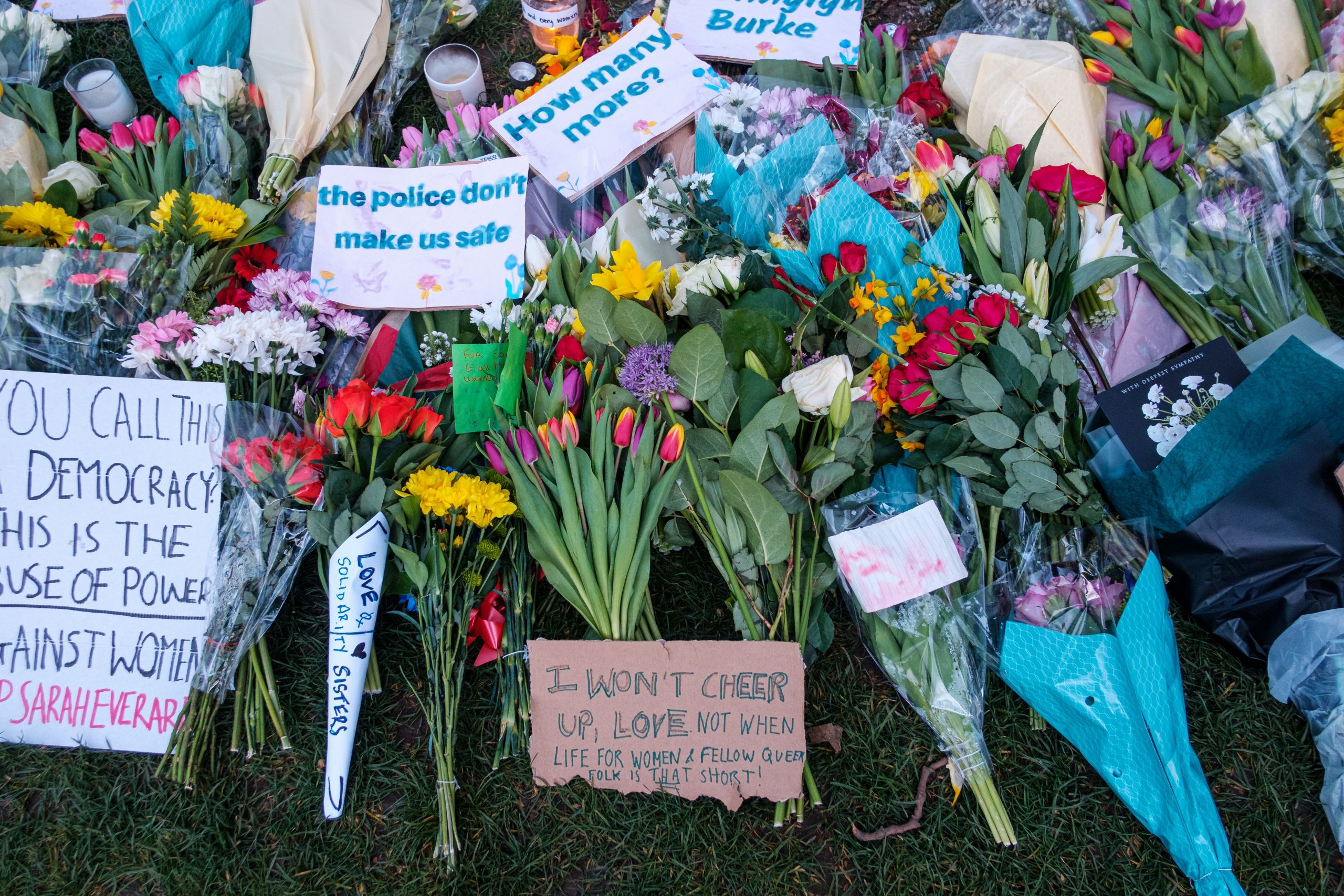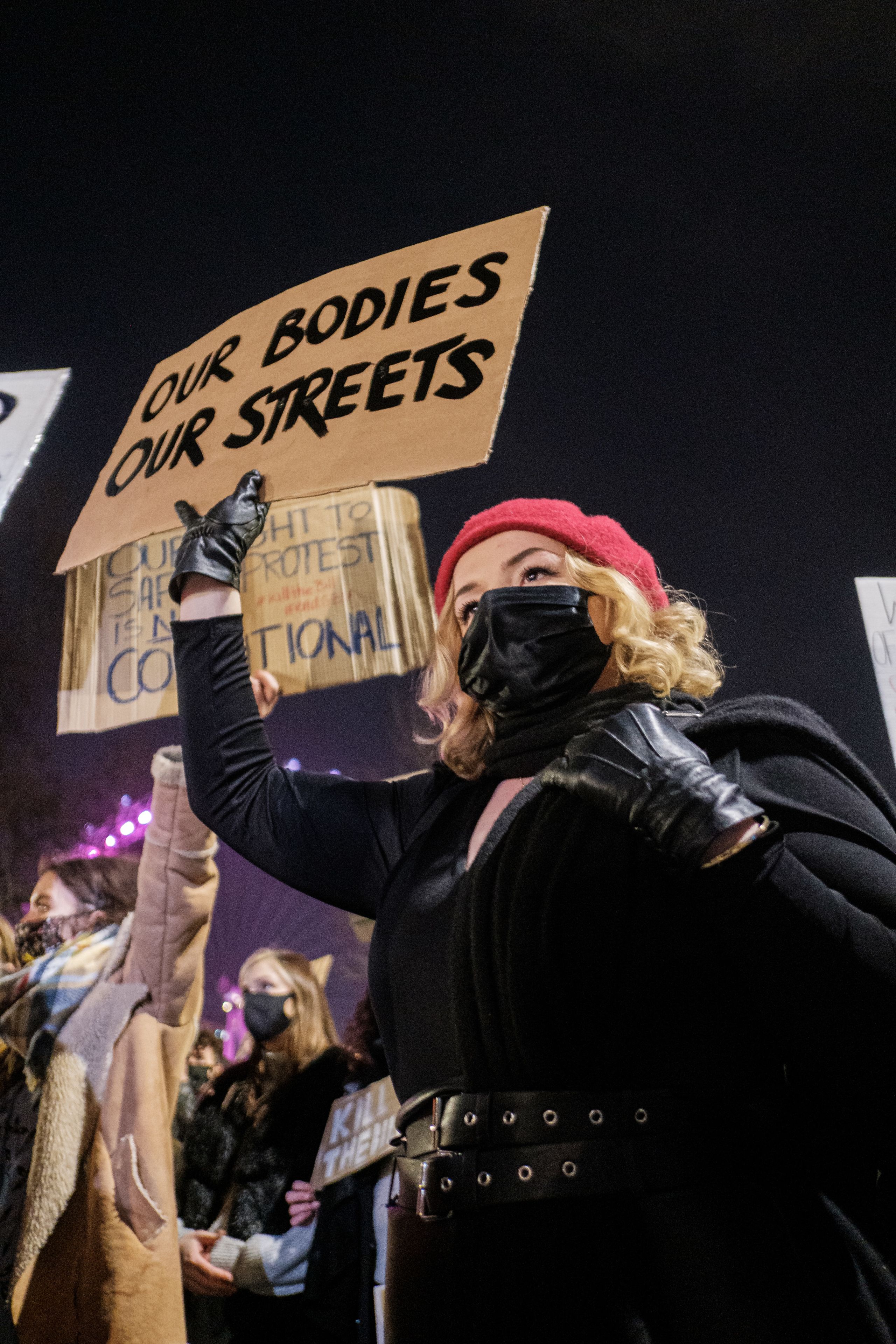‘I have been severely let down by an institution that is meant to keep us safe’: Young women demand better policing in London

Large crowds are not an unfamiliar sight at south London’s Clapham Common. On 13 March, this was the centre of a vigil in memory of 33-year-old Sarah Everard who was killed earlier that month while walking home from the common to Brixton, sparking an outpouring of anger and grief.
A huge gathering of people at the vigil, combined with a heavy police presence and Covid-19 lockdown restrictions, led to several arrests being made.
As day turned to night, tensions escalated and became combative, hugely damaging how many young women trusted those there to protect them.
YouGov polls show the number of people aged 18-24 who believe the police are doing a good job has crashed over the past year, from 52% in August 2020 to just 34% today.
Some of those young women in London are now demanding major changes to how the city is policed.
22-year-old Dorothy Reddin from Streatham was one voice at a demonstration at Hyde Park Corner on 3 April against a new bill increasing police powers to handle protests.
Reddin has long felt unsafe being alone at night in London, and she feels Everard’s death and the police response to events at Clapham Common has made it difficult for young women to believe the police will keep them safe.
“Walking home late at night from my local train station on the high road is terrifying”, she says. “You never know who could be lurking around."
“The police failed to protect Sarah Everard, and the response to the Clapham Common vigil was disgraceful. It’s undermined the trust women have in the police to protect us.”
The Police, Crime, Sentencing and Courts Bill 2021 was brought in to prevent protests having a ‘disproportionate impact on the hardworking majority’. It states that policing for two extended protests costs around £37 million.
At the Hyde Park Corner protest, women’s rights groups were joined by Black Lives Matter (BLM) demonstrators and environmental campaigners to oppose the bill in a show of solidarity among people who feel the police have not treated them fairly.
The fact that it was a police officer arrested and later charged with Everard’s murder added to the widespread feelings of injustice.
#EndViolenceAgainstWomen and ensure ALL people have access to #sexeducation that ensures understanding of #consent #respect #romance #love #goodsafesex to #ReclaimTheseStreets #ReclaimTheNight pic.twitter.com/BEr6jfg5Rb
— The Pleasure Project (@thepleasureproj) March 14, 2021
Reddin says: “Throughout 2020, there were national discussions surrounding reforming or defunding the police. While I don’t believe in completely defunding the police, I have been severely let down by an institution that is meant to keep us safe.
“How they treated the Black Lives Matter protestors and those at the Clapham Common vigil is unforgivable, and the whole industry needs major reform.
“The police in their training need to protect women at all costs from male perpetrators on the streets and have a strong sense of urgency when dealing with these situations.”

Image credit: Ehimetalor Akhere Unuabona via Unsplash.com
Image credit: Ehimetalor Akhere Unuabona via Unsplash.com
A report following the Clapham Common vigil by Her Majesty's Inspectorate of Constabulary and Fire & Rescue Services (HMICFRS) conceded ‘Public disorder was considered a low threat’, and found that officers responded ‘appropriately’ to the situation.
Journalist Patrick Atak has covered many demonstrations in London, and explained it is not uncommon for police to set a cut-off point when they decide to begin dispersing the crowd and making arrests.
He went to the Clapham Common vigil on 13 March and described what he believes was an unnecessary use of force by police against those paying their respects to Everard.
It looked like a serious escalation - from shouting and swearing to physical violence on the side of the police.
— Patrick Rhys Atack (@patricvk) March 13, 2021
Then a new chant started (or at least I heard it). “This is a vigil, we do not need your services” directed, obviously, at police.
What surprised him more was how the people who attended the vigil, many of whom were in their early 20s, were not prepared for the counter-protest tactics used by police.
Had police tactics at Clapham Common been different, much of the anger could have focused on long-standing issues impacting young women like violence and intimidation from men, rather than creating a standoff between police and protestors.
Lizzie McAllister, 23, remembered Sarah Everard at a vigil in Hackney’s London Fields where police involvement was minimal.
“From what I could see, the atmosphere could not have been more different", she says.
“There were very few police there and for the most part they kept to themselves. Seeing the scenes at Clapham and hearing stories from friends who had been there was disappointing.
“Among groups that I interact with, there was already distrust towards the police, especially in the wake of the Black Lives Matter movement and its rise in popularity over the last year.
“This hammers home the pervasiveness of police brutality and makes life scarier for women in the street. It has suddenly become a much more personally threatening issue.
"The charging of Derek Chauvin [the police officer who killed George Floyd], while not fixing the problem, shows that activism is allowing us to hold the police accountable for their actions.
"We need more of this, and in my opinion, a total overhaul of the law enforcement system."
The Metropolitan Police was contacted for comment and referred to the HMICFRS report.

